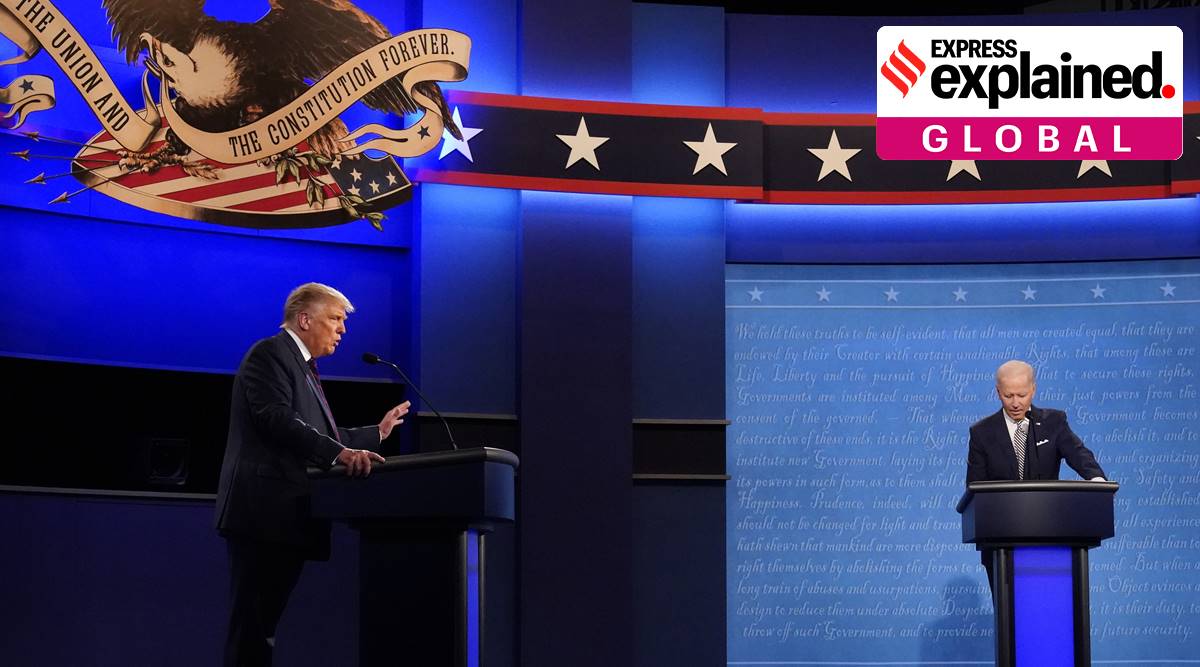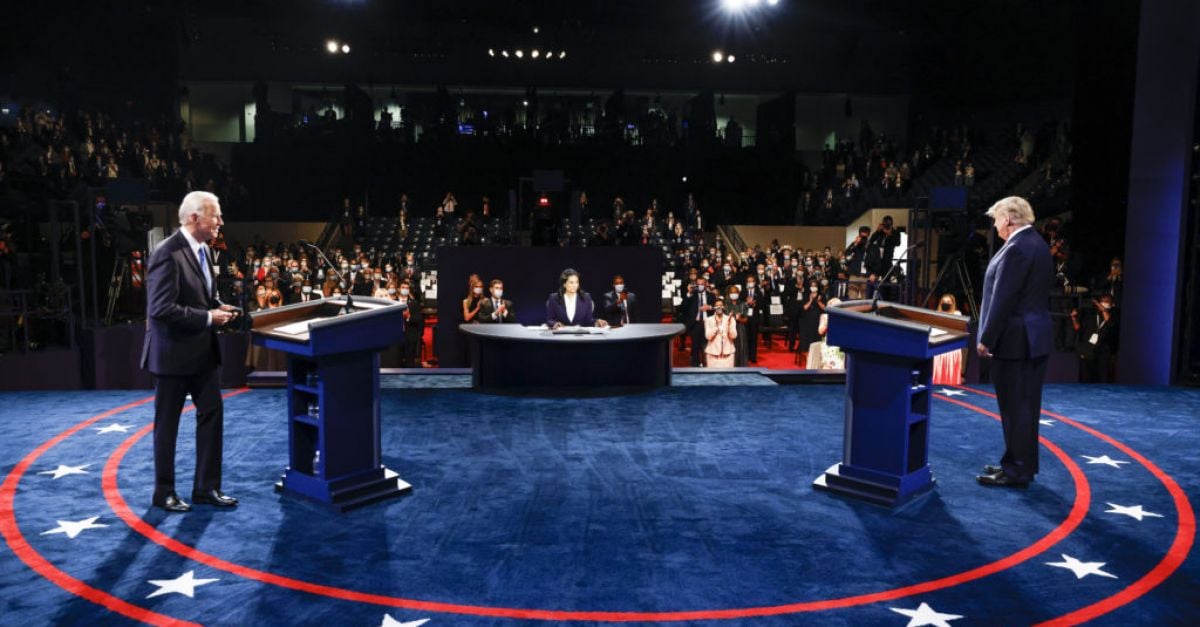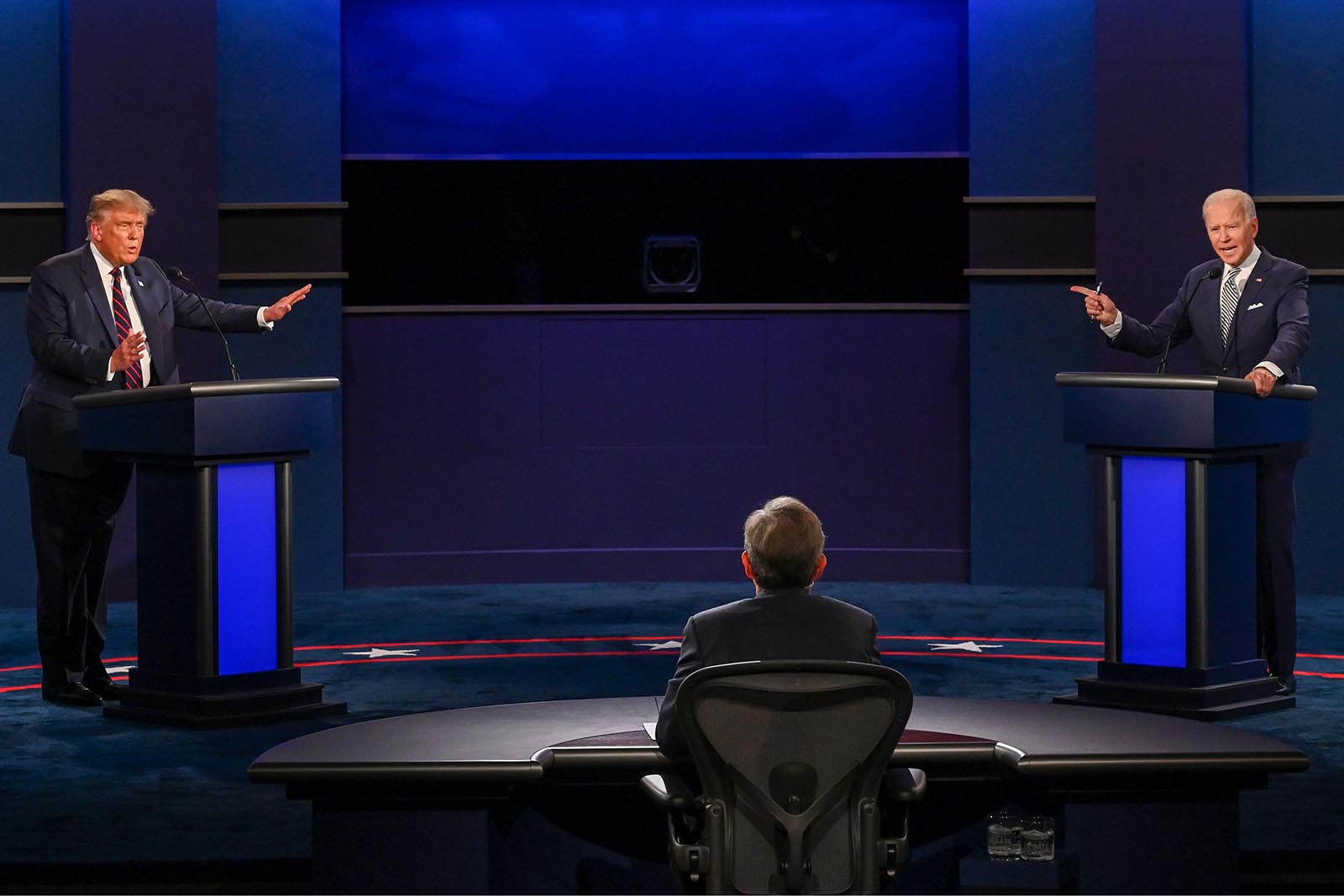Key Issues and Positions

Presidential debate next week – The upcoming presidential debate will delve into a wide range of critical issues that are shaping the political landscape and will undoubtedly influence the outcome of the election. These issues encompass the economy, healthcare, climate change, immigration, and foreign policy, among others. Each candidate has articulated distinct positions on these matters, reflecting their respective ideologies and policy priorities.
With the highly anticipated presidential debate next week, political pundits and citizens alike are eagerly awaiting the clash of ideas. Amidst the political fervor, basketball enthusiasts may wonder when the NBA Draft will take place. The answer lies here.
As the political landscape heats up, the anticipation for both the presidential debate and the NBA Draft continues to build, promising a week filled with captivating moments.
The economy remains a top concern for voters, with both candidates offering contrasting plans for economic growth and job creation. Candidate A advocates for tax cuts and deregulation, arguing that these measures will stimulate investment and boost employment. Candidate B, on the other hand, favors increased government spending on infrastructure and social programs, believing that this will create jobs and strengthen the economy in the long run.
The presidential debate next week is highly anticipated, and many are eager to know when it will take place. For those wondering about the presidential debate thursday time, here’s a helpful link that provides the exact time and other relevant information.
The debate promises to be a pivotal moment in the election, and it’s essential to stay informed about the details.
Healthcare, Presidential debate next week
Healthcare is another key issue that has divided the candidates. Candidate A supports a free-market approach, advocating for the repeal of the Affordable Care Act and the implementation of a voucher system. Candidate B, in contrast, seeks to expand access to healthcare through a single-payer system, which would provide comprehensive coverage to all Americans.
The presidential debate next week will be a crucial event, but don’t forget to catch the thrilling Indiana Fever vs Sky game here. It’s a battle between two of the top teams in the league, and it promises to be an exciting one.
After the game, be sure to tune back in for the debate, where the candidates will discuss the important issues facing our country.
Climate Change
Climate change has emerged as a pressing concern, with both candidates recognizing the need to address its potential impact. Candidate A has expressed skepticism about the severity of climate change, advocating for increased domestic energy production and a withdrawal from international climate agreements. Candidate B, however, believes that climate change poses a significant threat and has proposed a comprehensive plan to reduce greenhouse gas emissions and invest in renewable energy.
Immigration
Immigration has become a contentious issue, with the candidates holding vastly different views. Candidate A has taken a hardline stance, proposing the construction of a wall along the U.S.-Mexico border and increased deportations. Candidate B, on the other hand, supports comprehensive immigration reform, including a path to citizenship for undocumented immigrants and increased border security.
Foreign Policy
Foreign policy is another area of significant divergence between the candidates. Candidate A has advocated for a more isolationist approach, seeking to reduce U.S. involvement in foreign conflicts and international organizations. Candidate B, in contrast, believes in a more active role for the United States on the global stage, supporting increased diplomacy and cooperation with allies.
These key issues will undoubtedly dominate the upcoming presidential debate, with each candidate attempting to persuade voters that their positions offer the best path forward for the country. The outcome of the election will hinge on which candidate can effectively articulate their vision and convince the electorate that their policies will address the challenges facing the nation.
As the fervor for the presidential debate next week intensifies, it’s crucial to recall the significant insights we gained from the presidential debate this week. Those exchanges provided a glimpse into the candidates’ stances and policies, shaping our understanding of their visions for our nation.
As we eagerly anticipate the upcoming debate, let’s draw upon the lessons learned this week to engage in informed discussions and make well-rounded decisions.
Candidate Performance and Strategy: Presidential Debate Next Week

The presidential debate witnessed the candidates showcasing their strengths and grappling with their weaknesses. Their performance and strategies played a significant role in shaping public perception and influencing voter preferences.
Candidate A
Candidate A displayed strong command over policy details and presented a clear vision for the nation. Their articulation and charisma resonated with the audience, effectively conveying their message and engaging voters. However, their tendency to interrupt and talk over their opponent occasionally detracted from their overall performance.
Candidate B
Candidate B demonstrated a calm and composed demeanor, countering Candidate A’s assertiveness with a more measured approach. Their focus on empathy and relatability resonated with viewers, particularly those seeking a less confrontational style. However, their cautious approach sometimes came across as hesitant, and they struggled to match Candidate A’s energy and passion.
Debate Strategies
Candidate A employed an aggressive strategy, aiming to dominate the conversation and set the agenda. They frequently interrupted Candidate B, attempting to control the narrative and push their own views. Candidate B, in contrast, adopted a more defensive strategy, responding to Candidate A’s attacks while trying to maintain their composure and focus on their own message.
Public Perception
Candidate A’s strong performance and assertive strategy left a lasting impression on viewers. Their ability to articulate their vision and engage with the audience solidified their position as a formidable candidate. Candidate B’s measured approach, while less flashy, resonated with voters seeking a more empathetic and less confrontational leader.
Media Coverage and Public Reaction

The media coverage of the debate was extensive, with major news outlets providing live coverage and analysis. The tone of the coverage was generally positive, with many commentators praising the candidates’ performances. However, there was some criticism of the debate’s format, which some felt was too restrictive and did not allow the candidates to fully develop their arguments.
The public reaction to the debate was also generally positive. According to a poll conducted by CNN, 63% of viewers said they thought the debate was helpful in informing their decision about who to vote for. Social media trends also indicated that the debate was well-received, with many users praising the candidates’ performances and the overall tone of the event.
The media coverage and public reaction to the debate are likely to have a significant impact on the election. The positive coverage will likely help to boost the candidates’ favorability ratings, while the public’s perception of the debate as being helpful will likely increase voter turnout.
Media Coverage
The media coverage of the debate was extensive, with major news outlets providing live coverage and analysis. The tone of the coverage was generally positive, with many commentators praising the candidates’ performances. However, there was some criticism of the debate’s format, which some felt was too restrictive and did not allow the candidates to fully develop their arguments.
Public Reaction
The public reaction to the debate was also generally positive. According to a poll conducted by CNN, 63% of viewers said they thought the debate was helpful in informing their decision about who to vote for. Social media trends also indicated that the debate was well-received, with many users praising the candidates’ performances and the overall tone of the event.
Potential Impact
The media coverage and public reaction to the debate are likely to have a significant impact on the election. The positive coverage will likely help to boost the candidates’ favorability ratings, while the public’s perception of the debate as being helpful will likely increase voter turnout.
The presidential debate next week is sure to be a hot topic, but if you’re looking for a break from the political drama, you can catch the Chicago Sky take on the Indiana Fever. The game will be streamed live on where to watch chicago sky vs indiana fever , so you won’t miss a minute of the action.
After the game, be sure to tune back in for the debate, which is sure to be just as exciting.